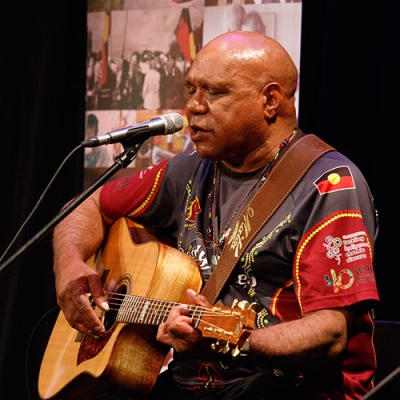Refine results
-
Commission – General31 March 2020Webpage

About Past Awards
Learn about the history of the Commission's Human Rights Awards, which were launched in 1987 to recognise the work of human rights heroes across Australia. -
Legal12 September 2018Submission
Telecommunications and Other Legislation Amendment (Assistance and Access) draft Bill 2018
1. Executive summary The Australian Human Right Commission (the Commission) makes this submission to the Department of Home Affairs (the Department), in response to the exposure draft of the Telecommunications and other Legislation Amendment (Assistance and Access) Bill 2018 (Cth) (the draft Bill). The stated purpose of the draft Bill is to provide national security and law enforcement… -
14 December 2012Book page
National Inquiry on Employment and Disability Interim Report: chapter 6
Discussion about people with disability in the open workplace tends to focus on whether a person can find a job, rather than keep a job. While successfully obtaining a job is clearly the first step for a person seeking employment in the open workplace, it is only the first step. -
Children's Rights18 April 2013Speech
Walking the talk: Towards authentic child voice
It’s fantastic to be amongst so many people committed to the wellbeing of Australia’s children. I’m thrilled to have been invited today by Prue Warrilow, Brian Babington and Families Australia and feel honoured to deliver the Berry Street Childhood Institute Families Australia Oration as my first speaking engagement as inaugural National Children’s Commissioner. -
14 December 2012Book page
Native Title Report 2002: Recognition of native title
Native title is an intersection of two different legal systems and cultures. The way in which Australia chooses to give recognition to the relationship that Indigenous people have with their land, and the range of options it considers to express that relationship, are matters that affect the human rights of Indigenous people. -
14 December 2012Book page
Native Title Report 2002: Implications of Miriuwung Gajerrong & Wilson v Anderson
The reasoning of the High Court in Wilson v Anderson [1] and Miriuwung Gajerrong [2] provides a comprehensive analysis of the operation of the Native Title Act 1993 (Cwlth) (‘NTA’). It is detailed and legally complex. In discussing NSW crown land legislation, Justice Kirby made the following observation about the NTA and the native title system: -
Legal14 December 2012Webpage
Intervention: Annotated Submissions on Behlaf of the Australian Human Rights Commission (Intervening)
The Commission has an interest and expertise in relation to the rights of transgender persons generally, and transsexuals more particularly, as set out in paragraphs 7 and 12 of the affidavit of Catherine Branson filed on 27 April 2011. Accordingly it will be able to assist the Court by way of these written submissions and, if appropriate, by way of oral submissions. -
Rights and Freedoms14 December 2012Webpage
Human Rights: Discrimination in Employment on Basis of Criminal Record
Australians who have a criminal record often face significant barriers to full participation in the Australian community. Trying to find a job is one of the areas of greatest difficulty for former offenders. This discussion paper explores one potential barrier to employment: discrimination in the workplace on the basis of criminal record. -
Children's Rights12 July 2019Speech
Children’s Rights in Australia: looking back and moving forward
Good morning everyone. I’d like to begin today by acknowledging the traditional owners of the land, the Widjabul people of the Bundjalung nation. I acknowledge and respect their continuing culture and the contribution they make. I also pay my respects to elders past, present and emerging. I’d also like to thank Professor Anne Graham for inviting me to speak to you today. And I also want to … -
14 December 2012Book page
Commission Website: National Inquiry into Children in Immigration Detention
This submission addresses some of the issues and questions raised in the background papers prepared by the Human Rights and Equal Opportunity Commission (HREOC) and in relation to the United Nations Convention on the Rights of the Child (1989) and the Convention Relating to the Status of Refugees (1951) and its 1967 Protocol (the Refugee Convention). The conclusions drawn in this submission arise… -
14 December 2012Book page
Preventing Crime and Promoting Rights for Indigenous Young People with Cognitive Disabilities and Mental Health Issues Appendix 2
In order to establish what is provided for Indigenous young people with cognitive disabilities and/ or mental health problems, information was requested from all relevant government departments across Australia.[213]A letter was sent to departments requesting: -
14 December 2012Book page
Bringing them Home - Chapter 1
Our life pattern was created by the government policies and are forever with me, as though an invisible anchor around my neck. The moments that should be shared and rejoiced by a family unit, for [my brother] and mum and I are forever lost. The stolen years that are worth more than any treasure are irrecoverable. Confidential submission 338, Victoria. -
Rights and Freedoms29 July 2021Webpage

Face masks and federal discrimination law
At various times during the COVID-19 pandemic, state and territory governments in Australia have made it a requirement for people to wear a face mask in certain settings. The different rules and exemptions around face masks are set out in the relevant state and territory public health orders. The latest mask-wearing requirements can be found on the appropriate state and territory government… -
14 December 2012Book page
Native Title Report 2002: Discrimination and native title
The resolution of the debate as to whether the extinguishment of native title by the common law and the Native Title Act 1993 (Cwlth) (‘NTA’) is racially discriminatory, depends upon the interpretation given to its two essential components: extinguishment and discrimination. The interpretation that the High Court has given to the extinguishment provisions of the NTA and its relationship… -
14 December 2012Book page
Native Title Report 2001: Chapter Three: Negotiating co-existence through framework agreements
A stable and enduring basis for a dynamic and long term relationship between Indigenous and non-Indigenous people over land is emerging through negotiation and agreement-making. Native title agreements are increasingly seen as an important tool in defining the rights of native title holders over their land. But here, as in other aspects of native title, there is concern that there are currently… -
14 December 2012Book page
National Inquiry into Children in Immigration Detention - Background Paper 8: Deprivation of Liberty and Humane Detention
In accordance with the general principle stated at Guideline 2 and the UNHCR [1] Guidelines on Refugee Children, minors who are asylum seekers should not be detained… -
14 December 2012Book page
5. Protecting the Human Rights of Children in Immigration Detention
Australia is responsible for ensuring that all children in its jurisdiction can enjoy all applicable human rights, including those in the Convention on the Rights of the Child (CRC), International Covenant on Civil and Political Rights (ICCPR) and Refugee Convention. That responsibility may be executed through legislation, executive action and the judicial system. Subject to the Australian… -
14 December 2012Book page
Native Title Report 2007: Chapter 5
Good functioning of prescribed bodies corporate (PBC)2 is essential to native title. Recognition of native title rights only goes part of the way to redress the historical injustice of land dispossession. Without appropriate means to make decisions about land, the existence of native title makes minimal appreciable difference to Indigenous people. -
14 December 2012Book page
Native Title Report 2007: Chapter 11
While the native title system is able to deliver social and cultural outcomes through determinations of native title, Indigenous land use agreements (ILUAs) are one of the only ways in which native title holders can pursue economic development. -
Disability Rights14 December 2012Speech
Disability discrimination legislation and its implementation (1997)
When I was invited to prepare this paper, Andrew Byrnes encouraged me to concentrate on drawing out strategic thoughts from the Australian experience which might be relevant in Hong Kong , and perhaps in other countries also. That is what I hope to do, rather than spending much time simply reciting that experience or the terms of Australia 's legislation.
